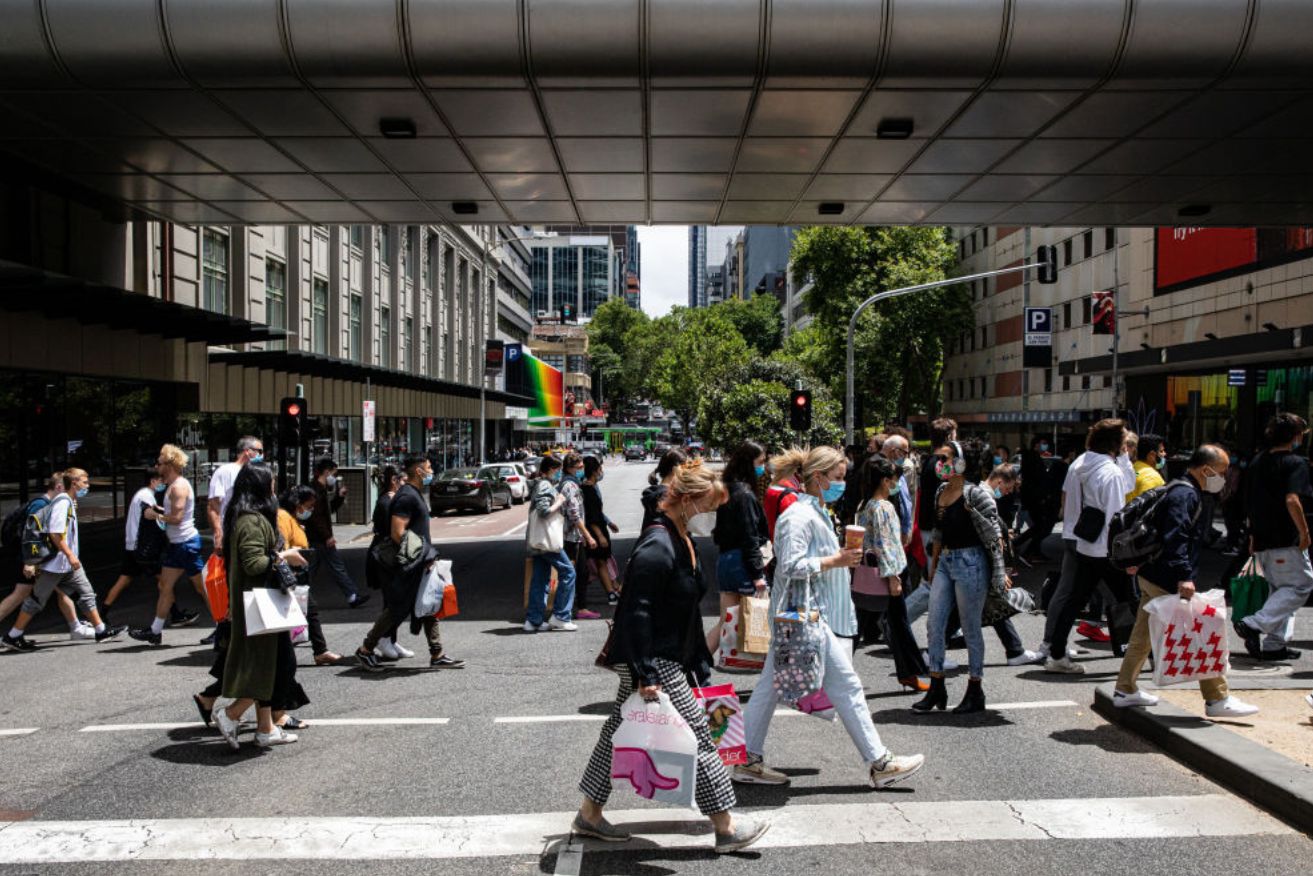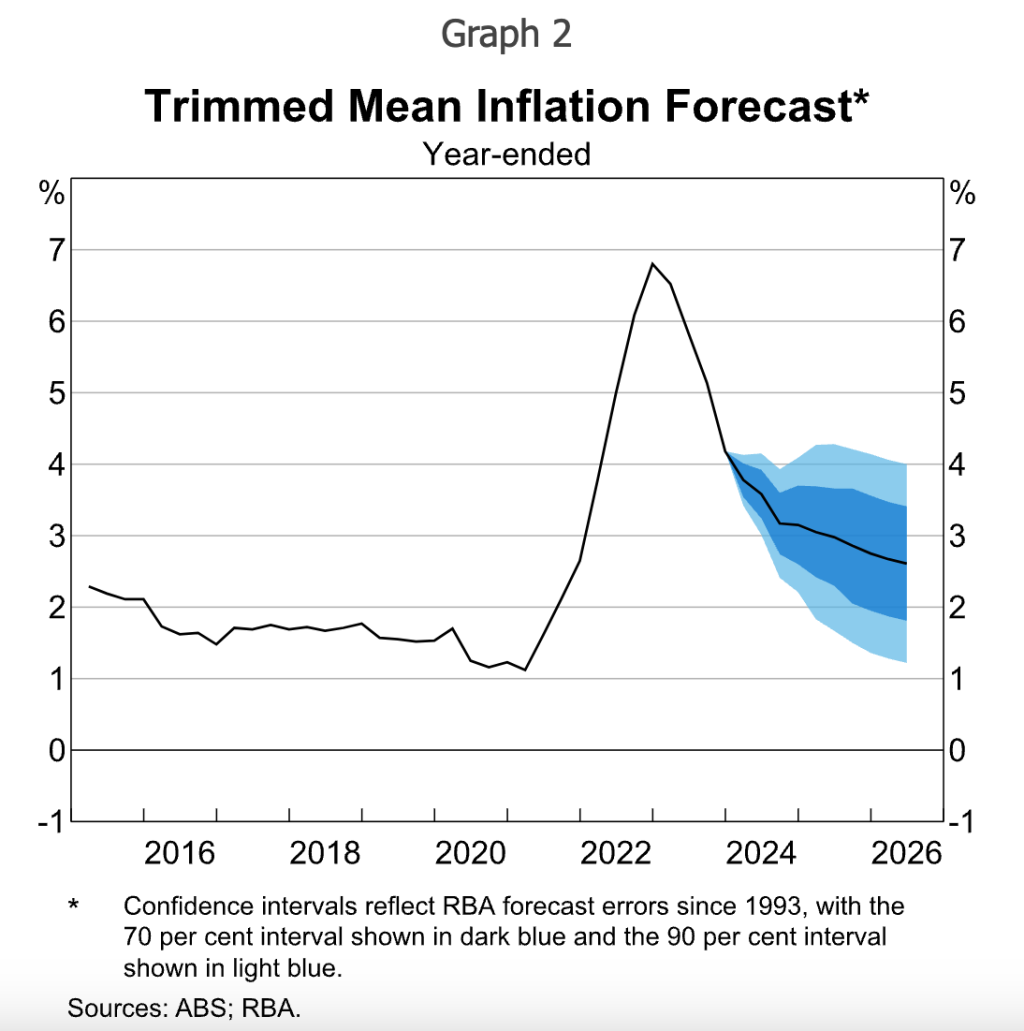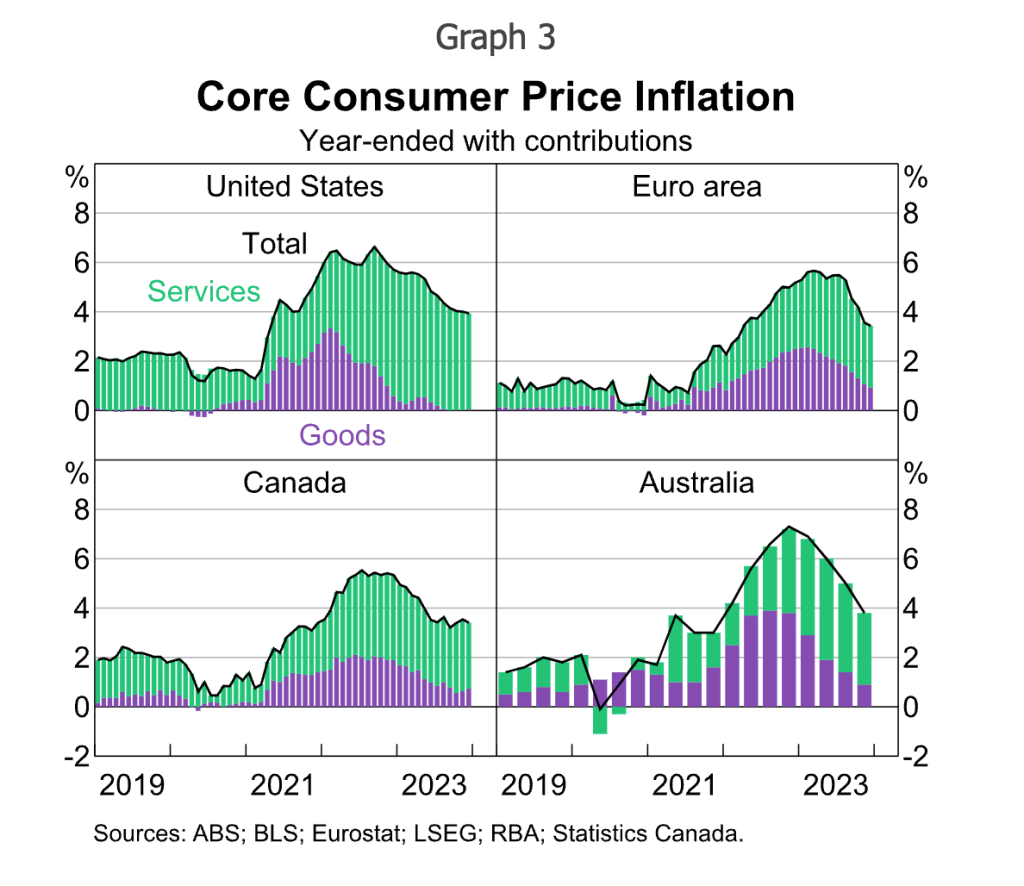Goods price relief for consumers as RBA stresses uncertainty over inflation outlook


Shoppers should be starting to feel some prices easing. Photo: Getty
Inflation for many consumer goods is easing faster than expected, but there’s still huge uncertainty about price growth falling back to target next year, an RBA economist says.
The Reserve Bank’s head of economic analysis Dr Marion Kohler told a forecasting conference in Sydney on Tuesday that the plunge in inflation to 4.1 per cent over the December quarter was driven by a rapid decline in price growth for goods, such as homewares and clothing.
“We are seeing the earlier easing in global upstream costs being passed through to the prices consumers are facing,” Kohler explained.
“We have been hearing for some time now from firms in our liaison program that supply chains have been improving and imported goods inflation easing.”
Consumers have been enjoying relief at the checkout for a range of consumer goods in recent months, centring around products that are imported to Australia from overseas.
That includes the clothing and footwear category, in which prices receded 1.1 per cent over 2023, according to the latest ABS figures covering the December quarter.
Furnishings, household equipment and services fell 0.2 per cent over the year.
Lamb and goat prices fell sharply in the December quarter, while international travel and accommodation also dropped.
But while lower goods inflation is helping to push price growth back towards the Reserve Bank’s 2 to 3 per cent target band, Kohler said there’s still “considerable uncertainty” around the outlook.
The RBA’s central forecast predicts inflation will reach the top point of the target band in late 2025 and continue until it hits the midpoint (2.5 per cent) some time the year after.
It is possible, however, that inflation proves more stubborn and remains above the target band heading into 2026, with the RBA including such a scenario in its forecast range.
Kohler explained the uncertainty in her speech on Tuesday, saying that robust demand and rising business costs could deliver stubborn inflation for services over the next few years.
This is important because when demand is too strong it’s much easier for businesses to pass on higher prices to consumers without losing as much revenue.
“Firms in our liaison program continue to say that they face pressure from higher labour and non-labour costs like professional services, logistics and insurance,” Kohler explained.
“We are forecasting that services inflation will decline from here, but only gradually as demand moves into better balance with supply and domestic cost pressures moderate.”
But economist Nicki Hutley thinks the RBA has overblown the risks of high services prices to the inflation outlook, arguing that price pressures are concentrated in categories such as insurance, rents and utilities.
Crucially, elevated prices for these services aren’t related to wages growth and also can’t be influenced readily by interest rate changes, which primarily act to lower consumer demand.
“They are overplaying the upside risks,” Hutley said.
“Housing, rents, insurance and utilities have been the four horsemen of the apocalypse for inflation for many quarters, but they’re not really things the RBA can do anything about.”
Hutley’s argument echoes analysis presented by Commonwealth Bank earlier this week that spotlighted how housing-related inflation remains the key challenge for the Reserve Bank.
CBA economists said that while some inflationary pressures remain elevated, it shouldn’t derail the trajectory for price growth, with interest rate cuts pencilled in for later this year.
Hutley agreed that prices are heading in the right direction, with the faster-than-anticipated easing in prices for consumer goods acting as a tailwind that should deliver lower inflation.










